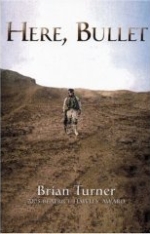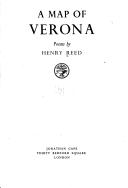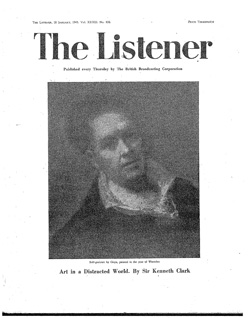|
Books of FuryBecause we love libraries and cartoon violence in equal parts. "Books of Fury," featuring Buddhist Monkey vs. a pack of book-defacing scofflaw ninjas. (Highlighters? Nooooo!) An episode of mondo media's Happy Tree Friends.
Unattributed EliotThe Rt Hon. Kenneth Baker, in his excellent anthology Unauthorized Versions: Poems and Their Parodies (OCLC WorldCat), assiduously includes this explanatory note with Henry Reed's famous send-up of Eliot's Four Quartets:
This parody by a poet celebrated in his own right won a competition in the New Statesman. Eliot himself commented: 'In fact one is apt to think one could parody oneself much better. (As a matter of fact some critics have said that I have done so.) But there is one which deserves the success it has had, Henry Reed's "Chard Whitlow".' There is no single poem to put beside Reed's parody, which cleverly manages to summon echoes from almost all Eliot's work, but a few examples are given here. Lord Baker places "Chard Whitlow" side-by-side with lines from Eliot's "Little Gidding," "Gerontion," "Ash Wednesday," and "Choruses from 'The Rock'." It seems unlikely (if not impossible) that Reed was parodying "Little Gidding," since that poem was written in 1942, after the publication of "Chard Whitlow" (.pdf). It's more likely Reed had in mind the earlier verse of Eliot's Four Quartets, such as "Burnt Norton" (1935). The possibility exists, therefore, that Reed's poem actually influenced Eliot's. Stephen Spender, however, in his book T.S. Eliot (New York: Viking, 1975), says that Eliot, in fact, 'relished' the parody, but that he was not seeking to 'emulate' it (p. 177). Regardless of who influenced whom, the real mystery is the source of Eliot's admiration of "Chard Whitlow," quoted above. Baker's anthology includes acknowledgments for the poems he has compiled, but I'm fairly certain there is no attribution for Eliot's words, and no footnotes accompany the explanatory notes. Does anyone have a copy they can double-check for me? The quote appears in numerous places on the web (including Robert Pinsky's article for Slate magazine), but always lifted from Baker's anthology, it would seem. Where did Baker take Eliot's quote from? What is the original source? Incidentally, for his winning poem in the New Statesman's parody contest, Reed was awarded "the usual prize" of two Guineas (42 shillings).
Up to SpeedJust a few updates. The bibliography is looking fairly smart now, in its Noguchi-style open-shelf filing, wouldn't you agree? (Compare with my last filing update, Feb. 2006.)
 I actually managed to rid myself of one of the file boxes seen piled on the right. Plastic albatrosses. I think I need to buy a couple of more stackable cubes, too, when I have the spare change. They're cheap, but shipping's a killer. Also, I've been steadily finishing bringing the Henry Reed pages up to date, even as I'm considering redesigning and upgrading to version 3.0. The site's getting a little tired, and starting to show its age, don't you think? Most recently, I edited Roger Savage's lengthy chapter from British Radio Drama, "The Radio Plays of Henry Reed," adding page numbers and the all-important appendix, which lists almost all of Reed's radio dramas and their dates of broadcast. Currently, I'm still waiting for Amazon.com to ship me two copies of the new, paperback edition of the Collected Poems. Their estimated date of shipping is not until October 11th!
LitLinksPublishers Bedford/St. Martin's have revamped their LitLinks database, which contains brief biographies and links to resources on the web for more than 700 authors. One of the enhancements is the ability to display lists of Bedford/St. Martin's titles in which a particular author's work appears. Handy!
Here's their page for Henry Reed (small factual error: Reed received an MA from the University of Birmingham in 1936, not a BA in 1937. See his Who's Who entry). And here's the list of their anthologies in which "Naming of Parts" is included. Unfortunately, although the site is slick-looking and a large improvement over the previous, static version, the new design relies heavily on JavaScript and frames to serve from the database, which makes linking to a particular author difficult, if not impossible, and functionality is lost if you do. Frames are a big accessibility no-no! Pages can take an eternity to load, if at all (which may indicate database or server problems), so let us hope Bedford/St. Martin's are still working out all the LitLinks kinks.
Early Auden FoundA biographer researching the critic John Hayward (1905-65) has turned up "a collection" of unknown (or thought to be lost) poems written by W.H. Auden, published in his teens while he was at Gresham's School in North Norfolk, England. John Smart, a former head at Gresham's turned up the poems (The Independent) in old volumes of the school's magazine, The Gresham, which Hayward had edited as a student.
In one of the journals, Mr Smart came across a poem entitled 'Evening and Night on Primrose Hill', which, like most of the verse in the magazine, was unsigned. In her definitive collection of Auden's 'Juvenilia', the author Katherine Bucknell refers to a sonnet the poet wrote about Primrose Hill in north-west London, which had been lost. The Independent also has a longer follow-up piece on the discovery. (Via dumbfoundry.)
Poems in This War, That WarThis recent feature in The Guardian, "In the Line of Fire," again asks the question, "Where are the war poets of this war?" (see "To the Poets of 1940," previously). In answer, the article suggests there is 'one book of high-quality poetry about the Iraq war': Here, Bullet, by Brian Turner.
Henry Reed also receives passing mention, along with fellow Second World War poets Alun Lewis and John Pudney. As part of the legacy of critics asking "Where are the war poets?", the article mentions an editorial from the August 8th, 1942 Times Literary Supplement: "Poets in War" (2MB .pdf). Of course, I looked it up: POETS IN WAR Where are the poets of the war? This question is often asked by those who remember that the last war threw up a fair amount of notable poetry. And that is true; for there were then living several highly skilled and experienced poets—Bridges, Kipling, Hardy, and there can be added Doughty, all of whom had something eloquent to say about the war or about aspects of it. But they, and others, were established writers; they viewed the war through the accumulated knowledge and wisdom of years; they were not soldiers, neither were they liable to be called up. Nor, when one thinks of it, have there ever been many poets of war who have been at the time of writing on active service, though the last war produced several poems by fighting men, like Julian Grenfell and Rupert Brooke, which are not likely to be forgotten. The fighting man, however, who writed about war is exceptional, and none too common is the soldier who sings of war years afterwards. Full of war as European poetry is, the singers of war have been for the most part not soldiers. Aeschylus, it is true, is said to have taken part in Salamis, and his narrative of that battle reads like participant's. Nearly all the epics are of war: and Homer's audience clearly delighted in it, but to the humane Virgil it was essentially a matter for sorrow and pity. Tyraeus, the Greek elegist, was certainly a warrior: and he appears to have seen war at too close quarters to glorify it.Also reviewed in this issue are Poems of This War: By Younger Poets (New York: Cambridge University Press, 1942), edited by Patricia Ledward and Colin Strang ("Songs of Emergency," p. 392), and volumes by Sidney Keyes, Alan Rook, Keidrich Rhys, and John Heath-Stubbs. By coincidence, August 8th, 1942—the day this editorial appeared in the TLS—was the very day Reed's "Naming of Parts" was printed in The New Statesman and Nation.
A Searchable Map of VeronaGoogle Book Search finally got around to digitizing the University of Michigan's copy of Reed's A Map of Verona: Poems (London: 1946) back in May of this year. It's still in copyright, so you can only view it in snippets, but it's still nice to have searchable text at a glance. Google's keywords for the book are also telling, if not a little strange: 'kharma, dead ground, iseult, tower rises, unspeaking, central sector, draughty, worth describing, harbour, slow wave, gulls, wide road, grotto, never happen, dancers, christmas eve, chard whitlow.'
Poetry in War-Time: The Older PoetsIn early 1945, Henry Reed wrote a set of two articles for The Listener in which he took stock of the poetry produced during the Second World War: "Poetry in War Time." These essays are important for two reasons: first, because they offer a glimpse of Reed as an emerging critic, writing about his friends and influencers; and secondly because the criticism offered is absolutely contemporary, and written by a peer (or at least, a promising hopeful).
Many of Reed's finer poems were first published in journals before 1945, including "Sailor's Harbour," and "Chard Whitlow" (The New Statesman and Nation), "Chrysothemis," and "Philoctetes" (New Writing & Daylight), and "A Map of Verona" (The Listener). Reed, however, had only published a mere handful longer pieces of criticism prior to "Poetry in War Time": "The End of an Impulse" (on Auden, Spender, and Day-Lewis) in the summer of 1943, and critiques of Edith Sitwell and T.S. Eliot in 1944. The first of these two essays, "Poetry in War Time: I—The Older Poets" (.pdf), appeared in The Listener on January 18th, 1945. In it, Reed traces the influence of the French Symbolists on the great poets of his time, Eliot and Sitwell (whose work we have shown he was already intimate with, and comfortable speaking about), and their sway, in turn, on the older poets he considers most influential during the war: Edwin Muir, Louis MacNeice, and C. Day-Lewis: The two poets of the 'thirties who have best succeeded in being also poets of the 'forties are Louis MacNeice and Cecil Day Lewis. They have always had great curiosity and initiative in exploring new musical possibilities for the lyric. Some of their earlier experiments do not wear well: the effects of MacNeice's 'The Sunlight on the Garden', for example, or some of the curious early poems of Day Lewis, where one finds the rhymes put at the four corners of a stanza like stones holding down a table-cloth at a breezy picnic. In MacNeice's Plant and Phantom and in his poems published since, flashy wantonness has all but disappeared. The final 'Cradle Song' in the volume is very haunting; and some of his later topical poems (for example 'Brother Fire') have shown an honesty and calmness of approach unusual in war-time verse. Next, we'll continue with Part II of Reed's essays on poetry in war-time: "The Younger Poets."
|
||||||||||||||||||||||||||||||
|
|
|||||||||||||||||||||||||||||||










